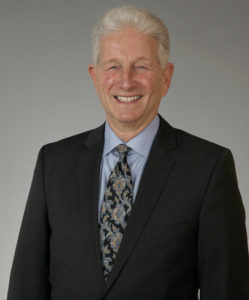
Master franchising can be an effective strategy for growing your franchise system in a new territory or country. Paramount to the long-term success of a master franchise deal is ensuring that both master franchisor and master franchisee negotiate an agreement which is economically beneficial to both parties.
Let’s look at some key elements that go into a master franchise deal and break down the terms which should be carefully negotiated to ensure the success of the franchise.
A master franchisee is like a “franchisor” in their particular territory or country. The master franchisee benefits from the use of the franchisor’s brand name, system and experience, as well as receiving the support of the franchisor initially and throughout the term of the master franchise agreement. The master franchisee typically is responsible for recruiting individual franchisees and providing training and support on an ongoing basis to effectively build the franchise brand in that territory.
Master franchise agreements reflect the economics of the negotiated deal. This includes the initial franchise fee to be paid to the franchisor for the rights to the master franchise in that territory. It also specifies the share of initial franchise fees and ongoing royalties received from sub-franchisees to be paid to the franchisor by the master franchisee.
One of the most challenging issues in negotiating a master franchise deal is the question of how large the franchisor’s share should be of these amounts. The division of these amounts is usually set by the franchisor and is often the principal, if not only, source of profit for the franchisor and the master franchisee in the target country.
In many cases, the franchisor will base the fees/split calculation solely on its anticipated or desired return from the development of the system in that territory or country. This is without serious or careful consideration for how the master franchisee will pay for the necessary development and support services for the unit franchisees. Mistakes with this calculation will either ensure the demise of the master franchisee or reduce the quality and performance of the system in the territory.

For example, if the continuing royalty is set at 6 per cent of gross revenue for unit franchisees and the franchisor decides it is entitled to 3 per cent, when it costs 3 per cent to do a proper job of developing and supporting the system in the territory, the master franchisee is faced with either making no profit on royalties or reducing the level of support to the unit franchisees.
If, however, the master franchisor keeps some of the responsibilities for administering the system, such as Internet management, training or supply chain management, the 50-50 split on royalties might work.
The problem is even greater in the division of the initial unit franchise fees. Such fees are often, at best, compensation to the master franchisee for the costs of properly setting up the unit franchisee.
Therefore, if the master franchisee assumes all of the responsibility and expense for establishing the unit franchises, but the franchisor takes a substantial percentage of the initial franchise fee, something has to be compromised.
If you’re looking to expand your franchise, or if you’re looking for a lucrative investment, master franchising may be for you. If so, negotiating a mutually beneficial agreement is crucial and can be complex and complicated work. It must be done with the counsel and guidance of an experienced franchise lawyer.
Having advised on and completed numerous master franchise agreements, my advice is that the responsibilities for the development and administration of the system should be negotiated and decided first between the master franchisor and master franchisee. After this has been established, then the division of the various fees should be based upon the costs of discharging those responsibilities and only after that should the parties divide up the remaining “profits”. This ensures the economics of the deal work for both master franchisor and master franchisee and sets up the franchise for long-term success in the territory.
I welcome your feedback and questions on this issue. Please post your comments on our LinkedIn page at: Dickinson Wright Canada, on Twitter at: @DWrightCanada or on my personal LinkedIn page at: linkedin.com/in/nedlevitt
About the Author:
Ned Levitt is a Partner at Dickinson Wright LLP. He is one of Canada’s leading authorities in franchising and distribution law. Ned has represented some of the world’s foremost franchises, and provides legal services to Canadian and International clients on all aspects of Canadian franchise law. Additionally, from 2000-2007, he was General Counsel to the Canadian Franchise Association and is currently a member of the International Committee of the International Franchise Association. Ned can be reached at 416-646-3842 or NLevitt@dickinson-wright.com and you can visit his bio here.

